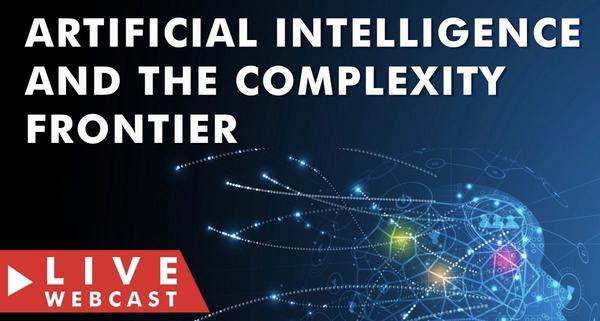Live Webcast: Artificial intelligence and the complexity frontier

Watch the live webcast here at 7:00PM ET on May 2nd!
Can computers think? They can certainly calculate – with staggering speed and ever-increasing power – and they have driven scientific and technological advances that would have been impossible without them. Even so, we would like to believe that, for some puzzles, there’s no substitute for old-fashioned human intuition. But this view may be changing.
A new breed of machine learning algorithms have begun knocking down cognitive milestones that, until recently, scientists believed were still decades away. Major advances are being made in computer vision, language translation, autonomous robotic action and other complex applications. At the same time, these new algorithms are helping scientists accelerate discovery in physics.
This stunning progress poses as many questions as answers: what are the fundamental possibilities and limits of machine learning? Can we create true human-level artificial intelligence, and how might its thoughts differ from our own? What new breeds of computer will fuel artificial intelligence – and, conversely, how will artificial intelligence enable new forms of computing?
In his May 2 public lecture at Perimeter Institute, Roger Melko will explore how computers have helped humanity solve increasingly complex puzzles, and ask which challenges, if any, only human intuition is equipped to tackle.
Roger Melko is an Associate Faculty member at Perimeter Institute and the University of Waterloo, whose research examines the interplay of large-scale computer simulations, quantum mechanics, and other complex problems in physics. Originally from Northern Manitoba, Melko received a BSc from the University of Waterloo, and a PhD from the University of California, Santa Barbara. He returned to Waterloo as a professor in 2007, and became the Canada Research Chair in Computational Quantum Many-Body Physics in 2013. He was awarded the Canadian Association of Physicists’ Herzberg medal in 2016 for his work on computer simulations of quantum entanglement.